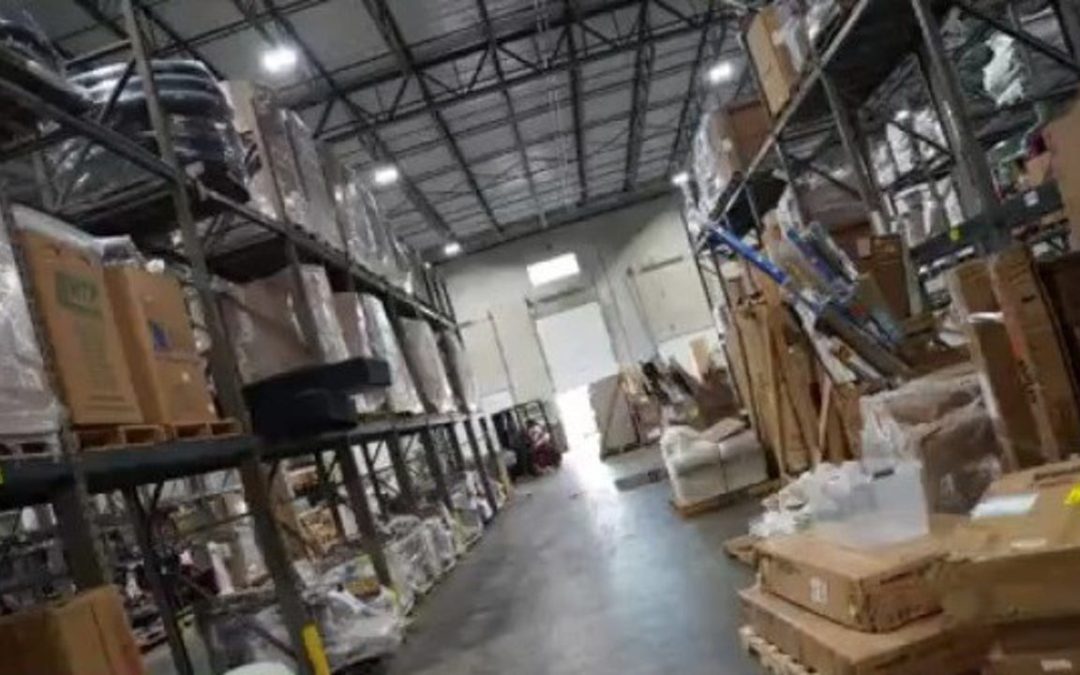Vendidit and AI: FOX 7 Focus
Vendidit, co-founded by John Paul DeJoria and Gary Stephens, is using artificial intelligence to make returning products more efficient. Stephens joins FOX 7 Austin’s John Krinjak in this FOX 7 Focus.
AUSTIN, Texas – Have you ever wondered what happens after you return a product that you bought? Often, it ends up sitting in a warehouse or getting thrown away.
Vendidit, co-founded by Austin billionaire John Paul DeJoria and his business partner Gary Stephens, is using artificial intelligence to make returning products more efficient.
Stephens joins FOX 7 Austin’s John Krinjak to talk about the company in this FOX 7 Focus.
JOHN KRINJAK: So Gary, talk to me about the need that you guys saw when you’re talking about what happens when we return stuff.
GARY STEPHENS: You know, I think a lot of people don’t think about what happens when you buy something, whether it be in a brick and mortar retailer or an e-commerce store. What happens when you return that item? And for us, we owned a company or still do own a company called Renew Logic that processed consumer returns in large volume. And it turns out you can do that in a very smart, profitable way with really good technology and fantastic people. With that, we built a system internally that over time, especially through Covid, we saw a dramatic increase in the number of returns. We went from somewhere around 9 to 12% consumer returns before Covid, to over a third of the items that are purchased for the brick and mortar e-commerce are returned. So we knew we needed to extract our software and make that available to anyone, any company that was servicing this industry. And by doing so, we enabled our partners, our competitors and new people coming into the industry to operate on this material in a much more efficient, more profitable way, and also saving the environment from all of the byproducts in returns in the consumer market.
JOHN KRINJAK: So just to back up a little bit, how did you come up with the idea that you could use AI to make this whole process more efficient?
GARY STEPHENS: This is very complicated software that is being used in an industry that’s very antiquated. And so we knew we needed to bring smart technology to this industry because people were still doing business the exact same way they’d been doing it over 20 years ago with the exact same tools they were using over 20 years ago. We needed to be fast and efficient if we were going to survive in a very cutthroat, very competitive industry. And I just happened to have the absolute smartest people working for me, and they came to me with some fantastic solutions of how we could fix the industry. And by utilizing this software in the reverse logistics industry, little did we know the impact we would have on all other industries larger. And in a global way, we’ve had people come to us way outside of the retail goods space or retail sector and return sector, and ask us to use our software to help them transact with their customers. A lot of times we’re talking about business to business transaction.
MORE FOX 7 FOCUS
Austin rent prices down: FOX 7 Focus
Austin rent prices have decreased compared to last year. Austin realtor Olivia Vale joins FOX 7 Austin’s John Krinjak to discuss in this FOX 7 Focus.
JOHN KRINJAK: So this is really anything from, you know, say a cell phone that someone returns to the store to, like, you were saying, an airplane engine that a some other company could use, even though it’s not brand new.
GARY STEPHENS: That’s right.
JOHN KRINJAK: You’re making these connections, cutting out the middleman, right?
GARY STEPHENS: That’s right. A lot of times you’ll see warehouses that are full of goods that are not necessarily moving. Companies are losing money every time that they have to pay rent or some sort of storage fee on inventory that they don’t know how to move. They need smart tools to make them more efficient. That’s what we do. When did it make all of their transactions more efficient? It helps them find solutions instead of simply warehousing goods.
JOHN KRINJAK: And talking about the environmental impact. You talked about taking trucks off the road. How much of a potential does technology like this have to really impact the environment?
GARY STEPHENS: Yeah. So a lot of times goods are moved because there’s an anticipation. There’s not well documented needs. You know, one of the things that machine learning code or artificial intelligence is the catchword. One of the things it can do is it can predict behavior of consumers. It can predict behavior on the global markets by utilizing that to, intelligently supply wherever your, your, your items need to go by intelligently predicting supply chain needs. You lower your transportation costs.
READ MORE
JOHN KRINJAK: So just kind of to put this in sort of a tangible context. You guys have a facility in Pflugerville. How different do the operations of that facility look now? With this software being utilized?
GARY STEPHENS: Sure. So we refer to that as our sandbox. We used to have multiple facilities throughout the United States. We’ve centralized that down into a larger facility where we can learn based on what you know, your product is, what are you manufacturing, what are you distributing? What are you receiving back from the consumer markets? We take that material and we put it through our processes, which are commonly referred to as reverse logistics. We put them through that process, utilizing the Vendidit toolset to show you efficient ways to remarket that material, to turn that commodity into a liquid commodity you can reinvest in your business.
JOHN KRINJAK: We hear a lot about the pitfalls of AI, but what does, you know, this potential say about the power of harnessing AI for good to make our lives better?
GARY STEPHENS: Yeah, I think using artificial intelligence in a very narrow lane, the way we’re doing it is the smart way to implement artificial intelligence, putting up some really strong guide rails and using it to make decisions faster. And the machine is helping you make that decision based on historical information that’s given to the machine. It provides you with the information you need. To find those efficiencies and cut out all of the overflow costs that all. Businesses suffer.
JOHN KRINJAK: All right. Gary Stevens, co-founder of Vendidit. Gary, thanks so much for being here. Really.
GARY STEPHENS: Absolutely. Thank you.

